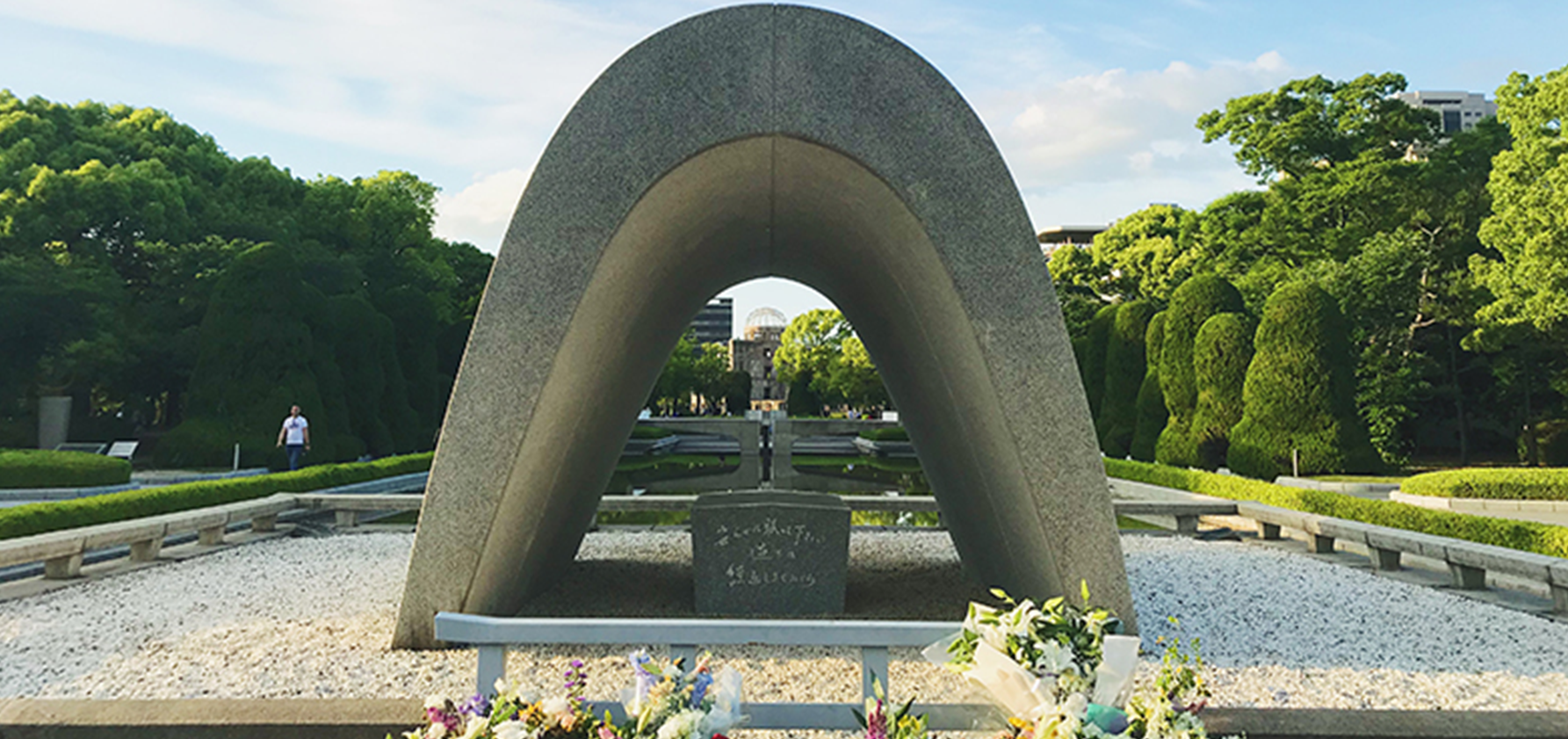
Returning to the United States after the study abroad trip to Japan, I found it rather difficult to fully process all that happened during that educationally enriching and culturally immersive experience. The trip exceeded all my expectations, as there wasn’t a single day when I didn’t learn something new. I initially went to Japan to focus on the medical effects of the atomic bombing, but once I arrived, I realized there was so much more I could get out of this trip than the specific lessons pertaining to my major.
One of the biggest cultural themes I noticed was how peaceful and respectful Japan is as a country. In learning about the rebuilding of Hiroshima and Nagasaki after the World War II bombings, I could see how the culture shifted from Japanese Imperialism to a hopeful society with an aspiration toward world peace. We visited peace parks and shrines built to honor the hundreds and thousands of lives lost in the bombing. Those places portrayed not a malicious, vengeful perspective on the event but rather a simple respect for the lives lost. It was evident that after enduring the horrors of one of the most destructive weapons in the world, an idea of peace had become instilled in Japanese culture as well as personal lives.
It seems as though individual mannerisms spring from a desire to maintain peace and avoid unnecessary conflict. For example, Japanese people are particularly quiet in public areas. I did not hear a single car horn or argument in the crowded streets of the cities we visited. The train and bus rides were mostly silent out of respect for others—this was particularly difficult for our group to adjust to, coming from a typically loud, boisterous country. I learned, however, that when traveling abroad, it’s important to educate ourselves on the cultures we are visiting and accommodate to their norms rather than expect them to accommodate to ours. Simply by educating ourselves about other cultures and showing respect for them brings us one step closer to co-existing in a peaceful environment. Of course, more work is needed to achieve greater peace.
When most of us think of the atomic bomb, what usually comes to mind is the image of the mushroom cloud, which allows us to dissociate ourselves from the tragedies that occurred beneath it; however, if we do not acknowledge the whole of history and learn from past mistakes, it is impossible to make progress toward a peaceful future. Through the testimonies of the hibakusha (atomic bomb survivors), I came to a deeper understanding of the bombing from the Japanese people’s perspective, something that is lightly brushed upon in U.S. education. Listening to the experience of the hibakusha was heartbreaking, but hearing their experience doesn’t compare to what it was like for them to live it. And after all they endured, they say they have no hate toward the United States citizens, because obtaining peace is not possible if hate and anger remain.
This belief was made evident in the multiple friendships that formed between us and the Osaka-Ohtani and Nagasaki University students. Overcoming the language barrier, I was surprised to discover how similar we were as we bonded over music, movies, and sports. And since returning to the United States, we are keeping in touch through social media. Also, we found common ground in our opinions on nuclear weapons as we engaged in extensive discussions and brainstormed ideas on the many ways the young people of our generation can both educate and advocate for the abolition of nuclear weapons worldwide. It is amazing to see how such great friendships can be formed between people who grew up in two culturally different countries.
Though I went to Japan with the intent to study the medical aspects of the bombing, I learned so much more than what was relevant to my major. This trip influenced my life in a very positive way by educating me about cultures and opinions beyond my own. The experience was amazing in every aspect, and I am very fortunate to have been given this opportunity to meet and learn from such great people. I encourage everyone to travel abroad and create your own unique memories.